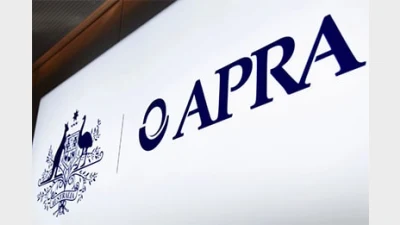APRA targets 14 super funds in crackdown on questionable spending



The Australian Prudential Regulation Authority (APRA) has warned superannuation trustees to lift their game on managing fund expenditure, after identifying shortcomings in how some funds justify spending decisions under the best financial interests duty.
In a letter sent to all RSE licensees, APRA said it had recently reviewed documents from 14 super funds, where spending levels were comparatively high or where the benefit to members was not immediately clear.
The review – which spanned thousands of documents relating to discretionary expenditure, marketing, and connected entity spending – uncovered inconsistent governance and poor linkage between spending decisions and member outcomes.
Deputy chair Margaret Cole said APRA expects funds to demonstrate stronger alignment between spending and financial benefits delivered to members.
“Improved decision making by RSE licensees in line with their BFID obligations will lead to better outcomes for members,” Cole said in the letter.
She noted that where APRA identified opportunities for individual RSE licensees to improve practices, it has communicated this directly to these RSE licensees and will continue to monitor as part of ongoing supervision.
“All RSE licensees are encouraged to review their practices considering the better practice examples and observations below holistically and take action to address any deficiencies,” Cole said.
“Where APRA identifies practices which fall short of legal requirements, APRA will utilise the full range of its powers to hold an RSE licensee accountable.”
The regulator’s observations highlighted several areas of concern among the 14 funds in question, including a lack of rigour and consistency among some RSE licensees in evaluating and approving expenditure, weak governance, unclear links to measurable member benefits, and an over-reliance on peer activity rather than outcomes for members.
Moreover, APRA found that some RSE licensees made poor use of quantitative metrics to assess member benefits, relied too heavily on third-party reporting without applying their own performance measures, and failed to review legacy agreements made prior to BFID.
Conversely, funds that demonstrated stronger practices had clear strategic links between spending and member outcomes, robust business cases supported by data, and active monitoring using member-focused metrics.
The update comes after APRA in October advised RSE licensees that it would be intensifying scrutiny of fund-level expenditure to promote improved industry practices to support better outcomes for members.
In October, Cole said APRA would adopt a targeted approach to scrutinising super fund spending that appears unusually high or lacks a clear member benefit, with a 12-month campaign involving fund-level reviews starting with FY2023–24 data.
Cole advised at the time that super funds can expect to receive notices requiring them to justify their spending decisions and demonstrate how these expenditures align with member interests.
“Information gathered during this process will inform APRA’s risk assessment of RSE licensees and may result in heightened supervision staging,” she said.
Recommended for you
Introducing a cooling off period in the process of switching super funds or moving money out of the sector could mitigate the potential loss to fraudulent behaviour, the outgoing ASIC Chair said.
Widespread member disengagement is having a detrimental impact on retirement confidence, AMP research has found.
Economists have warned inflation risks remain elevated even as the RBA signals policy is sitting near neutral after its latest hold.
Australia’s superannuation funds are becoming a defining force in shaping the nation’s capital markets, with the corporate watchdog warning that trustees now hold systemic importance on par with banks.









